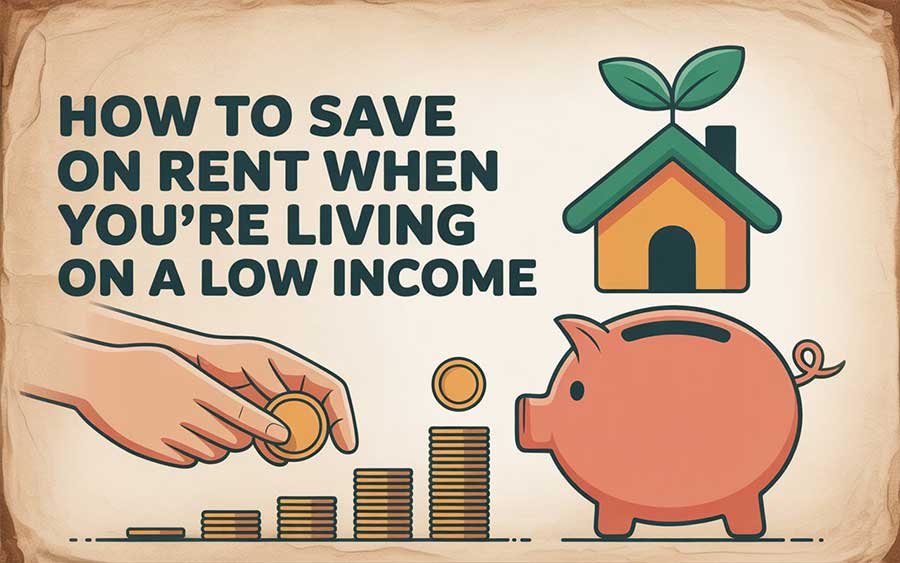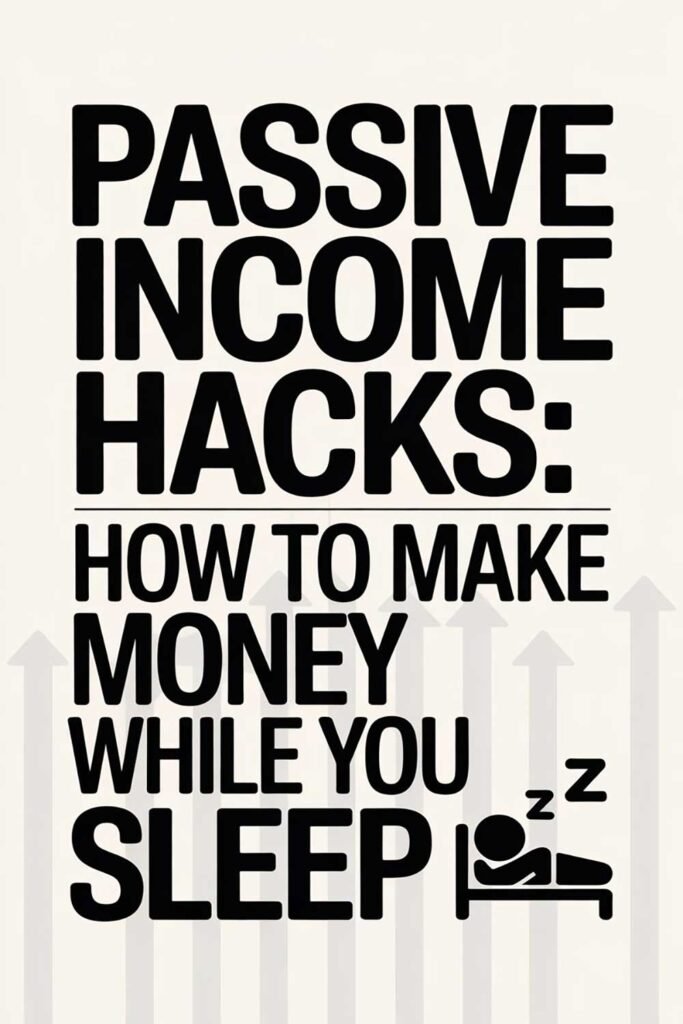
Rent Relief: How to Save on Housing When You’re Living on a Low Income (Your Essential Guide)
The rent is too damn high. If you’re living on a low income, this isn’t just a political slogan; it’s a crushing reality. Housing is often the single largest expense in any budget, and when your income is limited, a disproportionate amount of your hard-earned money can disappear into rent payments, leaving little left for food, transportation, healthcare, or savings. The stress of constantly worrying about making rent can be overwhelming, trapping individuals and families in a cycle of financial instability and anxiety.

I’ve witnessed this struggle countless times, both personally and through the experiences of friends and family. The feeling of being squeezed by housing costs, of working tirelessly just to keep a roof over your head, is a pervasive and debilitating challenge. It’s easy to feel hopeless, believing that affordable housing is a luxury you can’t access. You might feel like you’re stuck in a no-win situation, constantly sacrificing other necessities just to meet your landlord’s demands.
But here’s the crucial truth: while the housing market can be tough, there are concrete strategies, resources, and mindset shifts that can help you significantly reduce your rent burden, even on a low income. This isn’t about magic bullets or instant solutions; it’s about strategic planning, resourcefulness, and tapping into available support systems. It requires tenacity, a willingness to explore unconventional options, and a commitment to making every dollar count.
This comprehensive guide is designed to empower you with actionable steps and practical insights on how to save on rent when living on a low income. We’ll explore everything from immediate cost-cutting measures to long-term housing solutions and crucial support programs. Get ready to breathe a sigh of relief as you discover how to make your housing costs more manageable and free up vital funds for other areas of your life.
Why Saving on Rent is a Game-Changer for Low-Income Households
When you’re operating on a tight budget, every dollar saved makes a colossal difference. Reducing your rent offers a cascade of benefits:
- Financial Stability: Freeing up funds from rent allows you to pay for other essentials, reduce debt, and build an emergency fund, creating a more stable financial foundation. This aligns with broader strategies for simple budgeting tips for low-income families.
- Reduced Stress: Less worry about making rent translates to significantly reduced daily stress and improved mental well-being.
- Opportunity for Savings & Growth: Extra money can be directed towards education, career development, or even exploring 7 side hustles that can boost your income in 2025 to increase overall income.
- Better Quality of Life: More disposable income means you can afford healthier food, necessary transportation, or occasional moments of joy and relaxation.
- Debt Reduction: High rent often leads to credit card debt. Lowering rent frees up funds to pay down existing debt faster.
- Empowerment: Taking control of your largest expense instills a profound sense of agency and resilience.
Saving on rent isn’t just a tactic; it’s a strategic move that unlocks greater financial freedom and peace of mind.
Your Step-by-Step Guide to Reducing Your Rent Burden
This isn’t about finding a single solution, but about layering multiple strategies to create significant impact.
Step 1: Maximize Your Current Living Situation (Immediate Impact)
Before looking elsewhere, see if you can optimize where you are now.
- Negotiate Your Rent (Seriously!): If you’re a good tenant (pay on time, take care of the property), you might have leverage. Before your lease renewal, research comparable rents in your area. Present this data to your landlord and politely ask if there’s any flexibility. Highlight your reliability.
- Real-Life Example: Maria had been a tenant in her apartment for three years, always paying on time. When her landlord proposed a $100 rent increase, she researched similar units in the neighborhood and found most were still $50 less. She approached her landlord with this information, emphasizing her consistent payments and care for the property. Her landlord agreed to split the difference, reducing the increase to $50, saving her $600 a year.
- Sublet a Spare Room (If Allowed): If you have an extra bedroom and your lease permits it (always check!), consider finding a roommate. Even a few hundred dollars a month can make a huge difference. Ensure you have a clear agreement.
- Cut Utility Costs: High utility bills indirectly increase your housing cost. Practice energy conservation: unplug electronics, turn off lights, take shorter showers, use smart power strips, adjust thermostat settings.
- Bundle Services: Look into bundling internet, TV, or phone services to reduce overall monthly costs.
Step 2: Explore Affordable Housing Options & Programs (External Support)
Don’t be afraid to seek out resources designed to help.
- Section 8 Housing Choice Vouchers: This federal program helps low-income families, the elderly, and the disabled afford decent, safe, and sanitary housing in the private market. Contact your local public housing agency (PHA) to apply. Be aware that waitlists can be long.
- Low-Income Housing Tax Credit (LIHTC) Properties: These are privately owned complexes that receive tax credits for offering reduced rents to qualifying low-income tenants. You can find lists of these properties through your local PHA or state housing finance agency.
- Subsidized Housing: Government or non-profit organizations own and manage these properties, offering rents based on a percentage of your income.
- Emergency Rental Assistance: If you’re facing a short-term crisis (job loss, medical emergency), look for local and state programs that offer one-time rental assistance. Organizations like United Way or local charities often have information.
- Tenant Rights Organizations: These groups can help you understand your rights, mediate disputes with landlords, and sometimes offer legal aid.
Why it works: These programs are specifically designed to address the challenge of affordable housing for low-income individuals. While not always quick, they can provide substantial, long-term relief.
Real-Life Example: After struggling to keep up with rent after a job loss, David discovered his local PHA offered an emergency rental assistance program. He applied and received a one-time payment that covered two months of rent, giving him crucial breathing room to find new employment without the immediate threat of eviction.
Step 3: Consider Alternative & Frugal Living Arrangements (Think Outside the Box)
Sometimes, the most significant savings come from unconventional choices.
- Roommate Living (Even Beyond a Spare Room): Actively seek out roommate situations, even if it means moving. Living with 2-3 other people can drastically cut individual rent costs. Use reputable roommate-finding websites.
- Real-Life Example: Sarah, a recent college graduate earning an entry-level salary, found an apartment she loved but couldn’t afford on her own. Instead of giving up, she found two reliable roommates through a trusted network. Her rent went from an impossible $1,800 for a one-bedroom to a manageable $600 for her share of a three-bedroom. This allowed her to save for her future and avoid credit card debt.
- House Hacking: If you’re in a position to buy (even with a low-income loan program), consider buying a multi-unit property (duplex, triplex) and living in one unit while renting out the others. The rental income helps pay your mortgage, often drastically reducing your personal housing cost, potentially even making it free.
- Live with Family/Friends (Temporarily): If possible, moving in with supportive family or friends for a period can allow you to save a significant amount of money to get back on your feet or fund a down payment. Offer to contribute to groceries or chores as a fair exchange.
- Smaller Living Spaces: Are you paying for more space than you truly need? Downsizing to a smaller apartment, studio, or even a tiny home (if feasible in your area) can cut costs.
- Geographic Arbitrage: Could you move to a less expensive area or even a smaller town with lower cost of living, especially if you can work remotely or have transferrable skills?
Why it works: These options require flexibility and a willingness to adjust your lifestyle, but they offer some of the most substantial rent savings. This approach helps in building robust financial habits, as often highlighted in 15 money rules the wealthy follow religiously.
Step 4: Boost Your Income to Offset Costs (The Other Side of the Equation)
While not directly saving on rent, increasing your income effectively lowers your rent-to-income ratio, making housing more affordable.
- Side Hustles: Explore options like freelancing (writing, graphic design), delivery services (Uber Eats, DoorDash), pet sitting, online tutoring, or selling crafts. Even a few hundred extra dollars a month can significantly reduce your housing burden. Many passive income ideas can also supplement this, as seen in 5 passive income ideas to earn money while you sleep.
- Skill Development: Invest in courses or training that can lead to higher-paying jobs or promotions. Many community colleges or online platforms offer affordable options.
- Negotiate a Raise: If you’ve been a valuable employee, prepare a case for a raise based on your contributions and market rates.
Why it works: More income means you have more money available for all expenses, including rent, reducing the squeeze.
The Mindset Shift: From Helplessness to Empowerment
When you’re on a low income, feeling trapped by rent is common. But by actively seeking solutions, utilizing available resources, and being open to different living arrangements, you reclaim your power. It’s about being proactive, persistent, and resourceful. Every dollar saved on rent is a victory, a step towards greater financial freedom and a less stressful life.
Picture This…
Imagine the weight lifting from your shoulders. Your monthly rent payment, once a source of dread, now feels manageable, a smaller percentage of your overall income. Perhaps you’ve moved to a more affordable area, found a great roommate, or successfully secured rental assistance. You’re no longer living paycheck-to-paycheck just for housing. Instead, you have breathing room. You’re building your emergency fund, investing in your future, and finally affording healthy food and occasional simple pleasures. The fear of financial instability is replaced by a quiet confidence, knowing you’ve taken concrete steps to secure your most fundamental need – a safe, affordable home – and that you have the ingenuity to navigate whatever financial challenges come your way.
20 Powerful Quotes on Frugality, Housing, and Resilience
- “A budget is telling your money where to go instead of wondering where it went.” – Dave Ramsey
- “The best way to save money is to get out of your head that you have to spend it.” – Catherine Zeta-Jones
- “Frugality is founded on the most generous of instincts, and is the happy medium between avarice and profusion.” – Charles Caleb Colton
- “Waste not, want not.” – Proverb
- “Home is not where you live but where they understand you.” – Christian Morgenstern (Focus on the people, not just the structure.)
- “It is not the man who has too little, but the man who craves more, that is poor.” – Seneca
- “You must gain control over your money or the lack of it will forever control you.” – Dave Ramsey
- “Money, like emotions, is something you must control to keep your life on the right track.” – Natasha Munson
- “The first step toward financial freedom is to manage what you have.” – Unknown
- “If you don’t know where you are going, any road will get you there.” – Lewis Carroll (Have a housing goal!)
- “Poverty consists in feeling poor.” – Ralph Waldo Emerson
- “The greatest wealth is health.” – Virgil (Reducing housing stress supports this.)
- “Being frugal is not about cutting out all the things you love. It is about cutting out the things you don’t love so you can afford the things you do.” – Melissa Blevins
- “Rent is for people who can’t get it together to buy a home.” – Unknown (A common, though sometimes harsh, motivator for home ownership/house hacking)
- “A budget is a plan for how you’re going to spend and save your money.” – The Balance
- “Empty pockets never held anyone back. Only empty heads and empty hearts can do that.” – Norman Vincent Peale
- “Do not save what is left after spending, but spend what is left after saving.” – Warren Buffett
- “You don’t have to be great to start, but you have to start to be great.” – Zig Ziglar
- “Sometimes the most expensive thing you can do is nothing at all.” – Unknown (Applies to not addressing high rent).
- “Resilience is accepting your new reality, even if it’s less good than the one you had before. You can fight it, you can do nothing but scream about what you’ve lost, or you can accept that and try to put together something that’s good.” – Elizabeth Edwards
Disclaimer
Please note: This article is for informational purposes only and is based on general financial principles, common housing strategies, and anecdotal experiences. The availability and eligibility for housing programs (e.g., Section 8, LIHTC) vary significantly by location and individual circumstances. This content is not a substitute for professional financial advice, legal counsel regarding tenancy, or specific guidance on government assistance programs. Always research and confirm information with your local housing authorities, legal aid services, or a qualified financial advisor to understand what applies to your unique situation.
Share This Article!
Is high rent a burden for you or someone you know? If these strategies have offered hope or actionable steps, please share this article with friends, family, or on your social media! Let’s help more people find affordable housing solutions and achieve greater financial stability.






